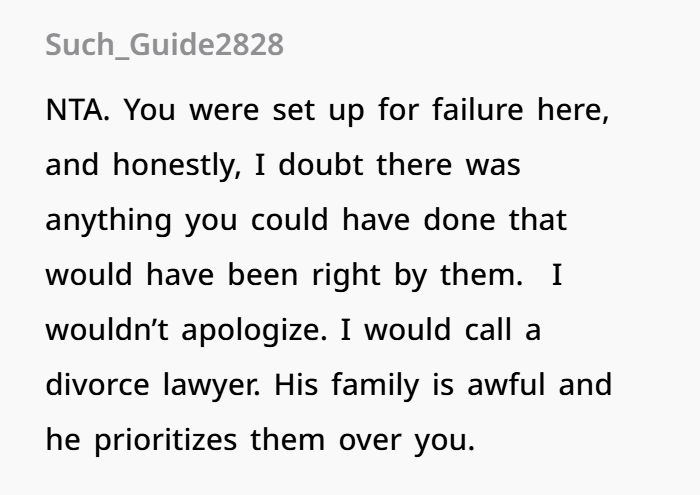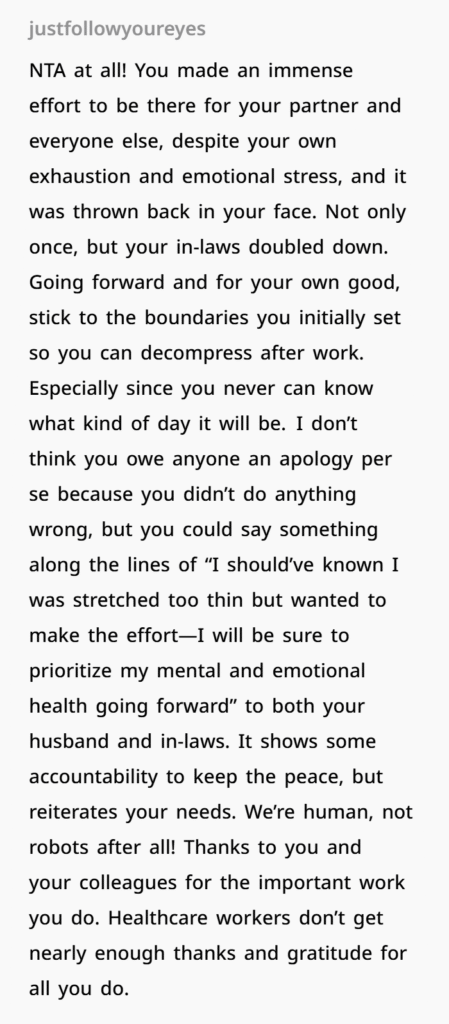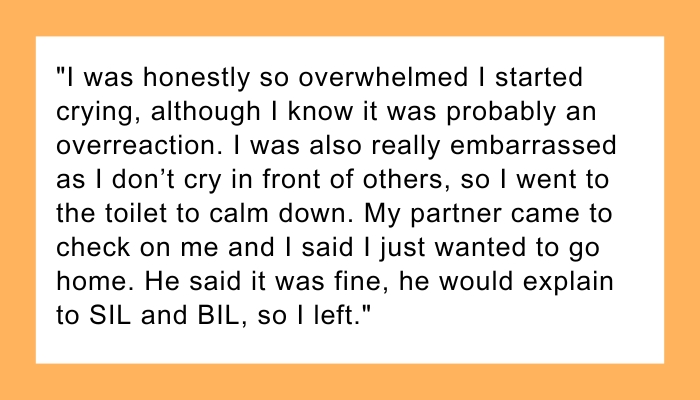Exhausted Paramedic Attends Birthday In Work Gear, SIL Melts Down, He Breaks Down In Tears
You’d think saving lives would earn you some understanding at the family dinner table. But not if you show up 20 minutes late—or wear the wrong clothes. After spending the whole day handling emergency calls, making life-or-death decisions, and managing extreme workplace stress, the last thing anyone wants is to be criticized by family.
The person who shared this story (the OP) had just finished an emotionally exhausting shift in a high-pressure job—likely in emergency medical services or first response. He tried to make his partner happy by attending a family birthday dinner, even though he was mentally drained. But instead of support, he was met with guilt and judgment. That emotional strain turned the night into a breakdown he didn’t plan for.
Read for more info Reddit
A critical care paramedic arrived late and exhausted to his sister-in-law’s birthday dinner after a draining shift
After realizing he had a very tight shift, his partner urged him to pick up another shift that would allow him make it to the celebration
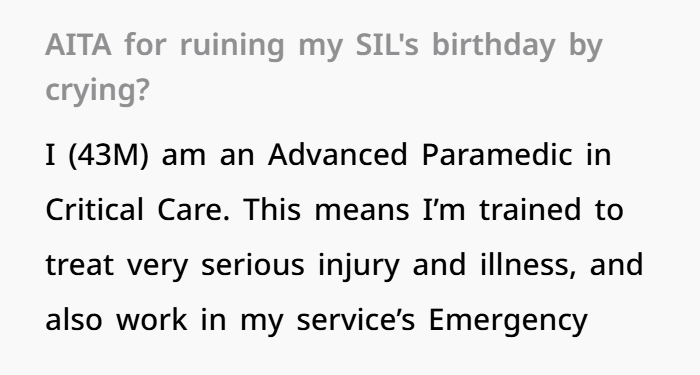
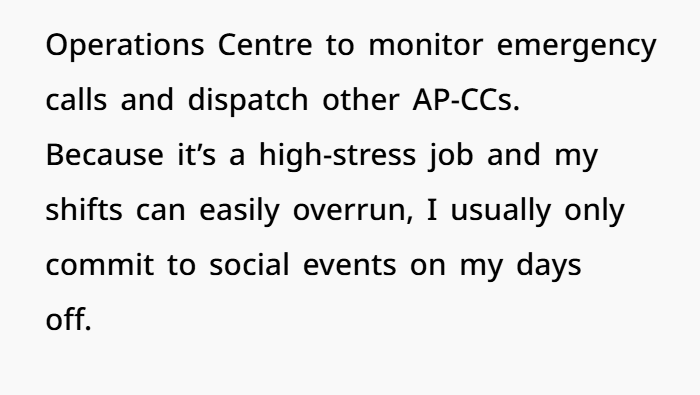
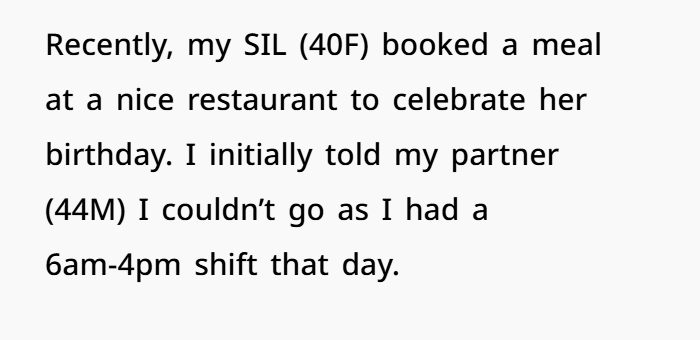
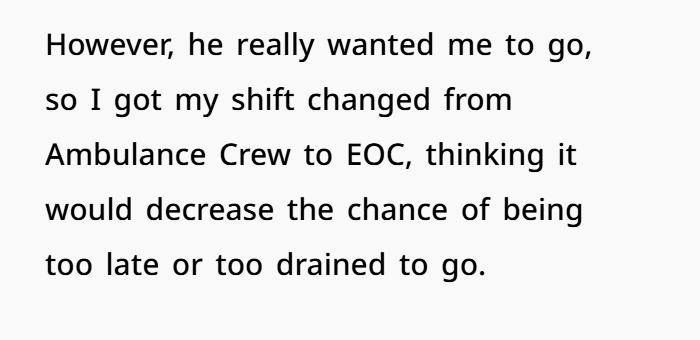
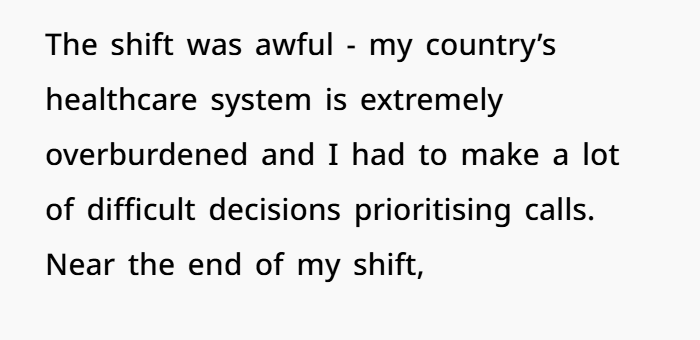
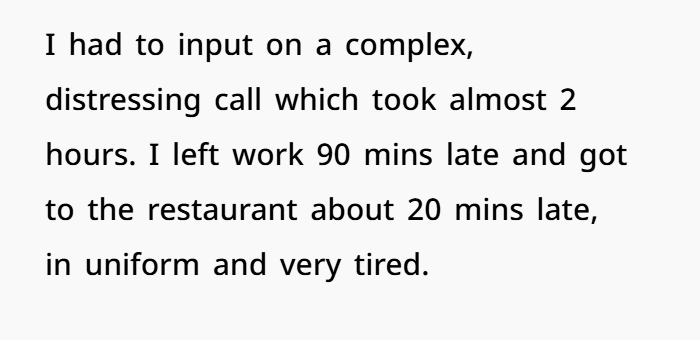
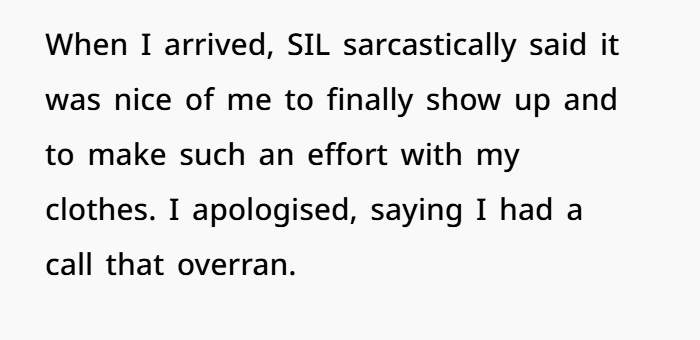
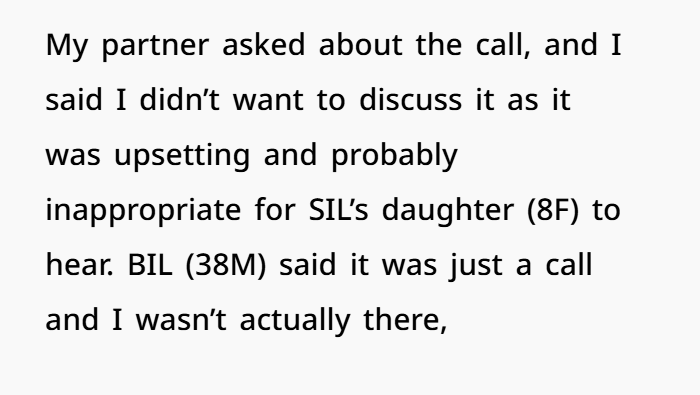
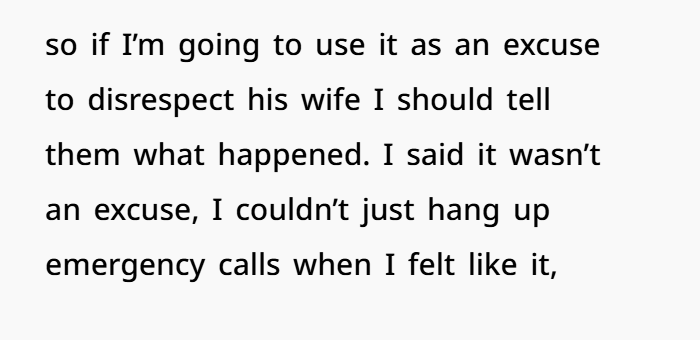
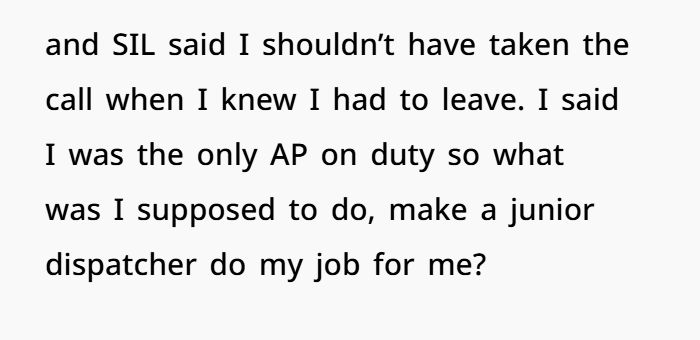
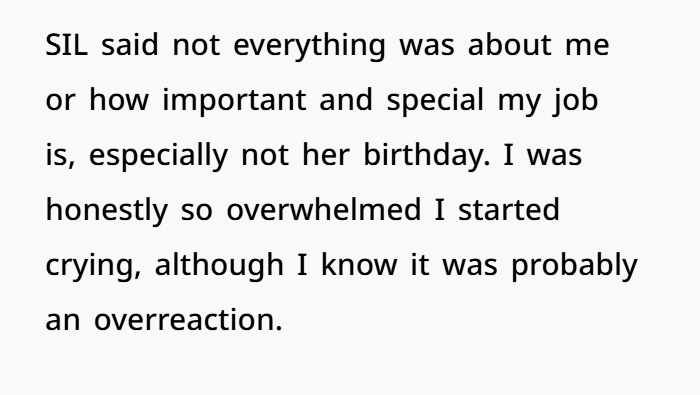
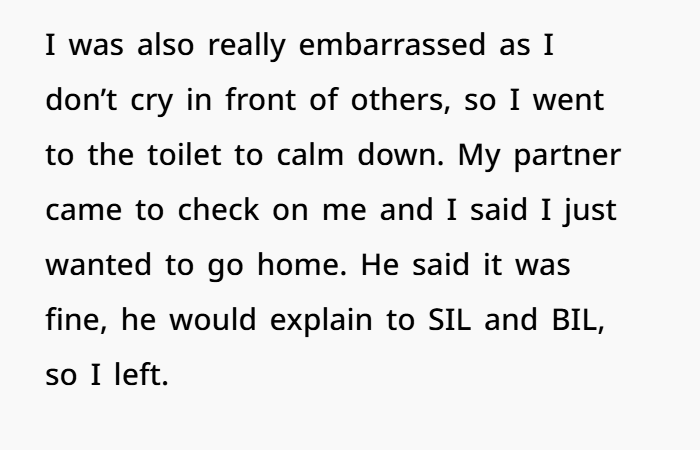


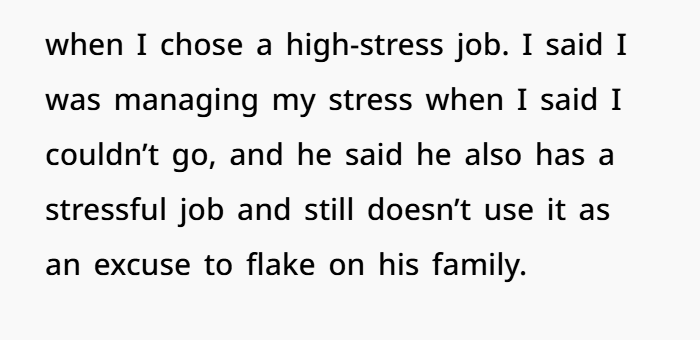
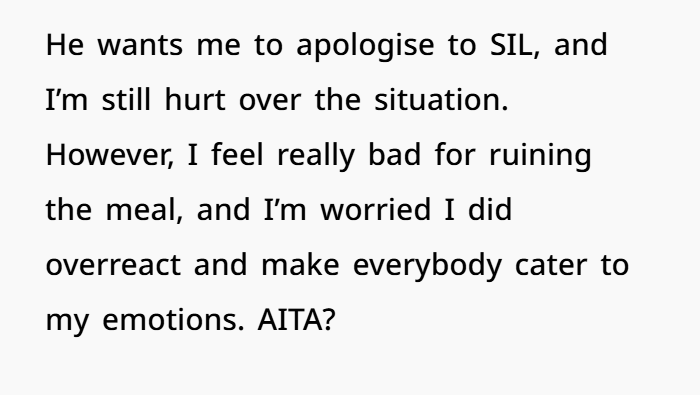
Overwhelmed, he left the dinner early, only to be told by his partner that the in-laws were furious that he left
The OP (Original Poster) works as a specialist paramedic, often the last person standing between life and death. His job involves high-pressure decisions, long hours, and dealing with trauma daily. When his sister-in-law planned a birthday dinner at a restaurant, he initially said no because he had a 10-hour shift. But to support his partner, he changed his assignment just to be there—even though it meant extra mental and physical strain.
That day, work was brutal. The healthcare system is under pressure, and he ended up dealing with a heartbreaking emergency that made him finish late. He arrived at the restaurant 20 minutes behind schedule, still wearing his paramedic uniform, exhausted and emotionally drained.
Instead of support or empathy, he faced passive-aggressive comments and sarcasm. His sister-in-law mocked his outfit and his lateness. When he didn’t want to share the disturbing details of the emergency call, her husband accused him of “making excuses.” The sister-in-law went as far as saying her birthday should be more important than his job. She blamed him for poor planning, even after he explained he was the only advanced paramedic on duty and couldn’t leave a life-threatening situation.
That was the final straw. Already on the edge, he broke down and cried in the restaurant bathroom—a clear sign of emotional burnout. His partner comforted him and told him it was okay to go home.
But things didn’t end there.
Later, the sister-in-law and her husband demanded an apology, claiming he had ruined the evening. Despite all he had done to show up for the family, they ignored his mental health, his emergency medical responsibilities, and the emotional trauma he carried from his job.
The National Association of State Rescue Agencies (NASRA) acknowledges that paramedics often suffer from emotional burnout due to limited healthcare resources and poor organizational support. This chronic stress can lead to serious conditions like compassion fatigue and secondary traumatic stress. Common signs include constant tiredness, irritability, anxiety, low motivation, and reduced empathy—all of which can deeply affect both work and home life.
According to Meadows Psychology, compassion fatigue is the emotional, physical, and psychological toll felt by professionals who help others through trauma. If not recognized early, it can cause emotional distance, relationship strain, and communication breakdowns within families. For paramedics, this means the stress from life-saving work often carries over into personal life, making emotional support at home absolutely vital.
Forbes also reports that high-pressure jobs—like those in emergency services, finance, or law—often demand long hours, quick decisions, and constant availability. They recommend prioritizing mental health and setting clear work-life boundaries to avoid long-term damage.
In the case we shared, the internet overwhelmingly sided with the paramedic. Many felt his partner and sister-in-law were unsupportive, despite him going above and beyond to attend the dinner. Netizens pointed out that arriving late in uniform after a hard shift shows commitment, not disrespect.
His partner also demanded he apologize to his siblings, but netizens disagreed and pointed out that the author was being treated unfairly

